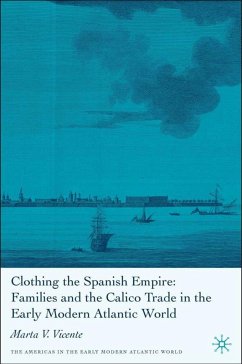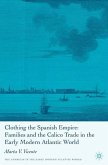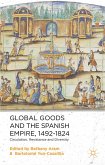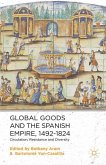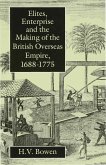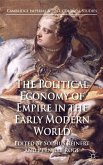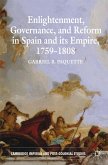By the 1780s in the city of Barcelona alone, more than 150 factories shipped calicoes to every major city in Spain and across the Atlantic. This book narrates the lives of families on both sides of the Atlantic who profited from the craze for calicoes, and in doing so helped the Spanish empire to flourish in the eighteenth century.
Hinweis: Dieser Artikel kann nur an eine deutsche Lieferadresse ausgeliefert werden.
Hinweis: Dieser Artikel kann nur an eine deutsche Lieferadresse ausgeliefert werden.
"This lively, innovative, fascinating study shows just how important the family was in the calico trade of the early modern Atlantic world. This important book rethinks not just the history of the family but also some core assumptions of economic history; it is a remarkable achievement."
- Barry Reay, Professor of History, University of Auckland (New Zealand), and author of Microhistories: Demography, Society, and Culture in Rural England, 1800-1930
"Marta V. Vicente has written a history of calico as lively, colorful, and vivid as the printed fabrics themselves. Using a model of family and household to explore a crucial period in economic history, she presents the stories of families whose networks of blood radiated from the industrial and commercial center of early modern Barcelona to span the Atlantic world. This history is not limited to Spain and its empire, however, for Vicente questions traditional assumptions about the development of industrial capitalism, such as the mutual antagonism of workshops and factories, the economic functions of guilds, the significance of social capital, and the roles of sentiment and emotion in economic adventures."
- Mary Elizabeth Perry, Professor of History, Occidental College
"This book makes us rethink Spain's weak industrialization as Vicente vividly demonstrates the strength and innovation of Barcelona's calico industry. However, more than providingjust an economic history, by viewing the calico industry through the lens of family history, Vicente has unraveled the changing fortunes and fashions of the men and women of eighteenth century Spain."
- Allyson M. Poska, Associate Professor of History, and author of Women and Authority in Early Modern Spain
"Examining the calico industry during the eighteenth century by bringing in family and gender history, Vicente provides a depth of analysis unequalled by any other study of the textile trade and fashion in the early modern Spanish empire. Meticulously researched and lucidly presented, this book greatly deepens our understanding of the complex role of women and the family within the contours of one of the most vibrant industries of the eighteenth century. Readers of the stories of familial and commercial businesses that Vicente weaves into her study will be enriched by this careful piece of social history."
- Sherry Velasco, Professor of Spanish, University of Southern California
- Barry Reay, Professor of History, University of Auckland (New Zealand), and author of Microhistories: Demography, Society, and Culture in Rural England, 1800-1930
"Marta V. Vicente has written a history of calico as lively, colorful, and vivid as the printed fabrics themselves. Using a model of family and household to explore a crucial period in economic history, she presents the stories of families whose networks of blood radiated from the industrial and commercial center of early modern Barcelona to span the Atlantic world. This history is not limited to Spain and its empire, however, for Vicente questions traditional assumptions about the development of industrial capitalism, such as the mutual antagonism of workshops and factories, the economic functions of guilds, the significance of social capital, and the roles of sentiment and emotion in economic adventures."
- Mary Elizabeth Perry, Professor of History, Occidental College
"This book makes us rethink Spain's weak industrialization as Vicente vividly demonstrates the strength and innovation of Barcelona's calico industry. However, more than providingjust an economic history, by viewing the calico industry through the lens of family history, Vicente has unraveled the changing fortunes and fashions of the men and women of eighteenth century Spain."
- Allyson M. Poska, Associate Professor of History, and author of Women and Authority in Early Modern Spain
"Examining the calico industry during the eighteenth century by bringing in family and gender history, Vicente provides a depth of analysis unequalled by any other study of the textile trade and fashion in the early modern Spanish empire. Meticulously researched and lucidly presented, this book greatly deepens our understanding of the complex role of women and the family within the contours of one of the most vibrant industries of the eighteenth century. Readers of the stories of familial and commercial businesses that Vicente weaves into her study will be enriched by this careful piece of social history."
- Sherry Velasco, Professor of Spanish, University of Southern California

